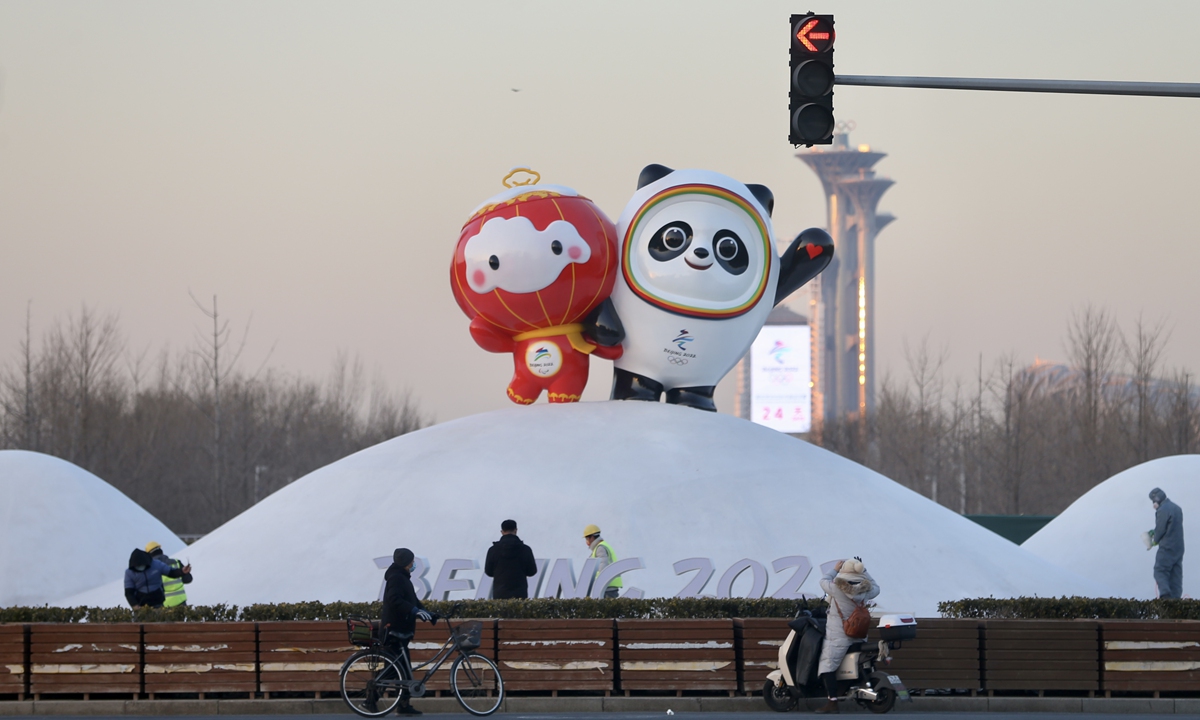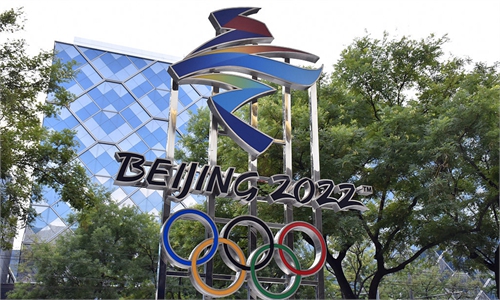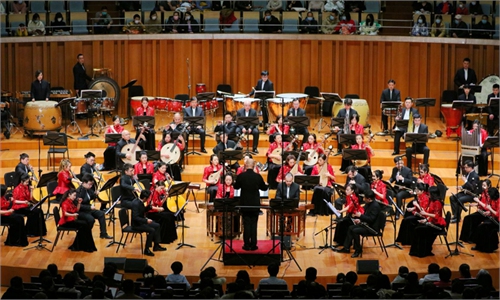Beijing, Hebei to launch emergency response to potential air pollution during the Olympics: MEE

The mascots for the Beijing Winter Olympic and Paralympic Games are seen on a street in Beijing on January 11, 2022. Photo: VCG
To ensure the air quality during the Beijing 2022 Winter Olympic Games and Paralympic Games, China's capital city Beijing and the co-hosting province of North China's Hebei will initiate emergency responses to manage and control businesses and vehicles to confront potential air pollution, China's environmental authority said on Monday.When potential air pollution is predicted, local authorities will launch the emergency response plan, Liu Youbin, spokesperson of the Ministry of Ecology and Environment (MEE), told the Global Times at a press conference on Monday.
The 2022 Winter Olympic Games, co-hosted by Beijing and Zhangjiakou in Hebei, will kick off on February 4.
The Winter Olympics and Paralympic Games will be held at the conjunction of winter and spring, when environmental meteorological conditions are not very favorable for air quality, Liu said.
In order to create a good environment for hosting the Games, Beijing and related cities in Hebei have authorized local governments, through the legislation of the People's Congress, to adopt necessary administrative measures to temporarily manage and control some businesses and vehicles prone to heavy pollution and low economic impact during the periods of preparation and hosting of the Winter Olympics.
Meanwhile, based on the levels of the pollution and sources of pollutants, there may be different measures to reduce pollution emissions.
The measures to reduce emissions will be targeted, scientific, and transparent, in order to minimize their effects economically and socially, Liu said, noting that the operations related to people's livelihoods, energy supplies, heating, and virus prevention should be fully ensured.
China has been tackling air pollution in the past decade with comprehensive measures and has seen great achievements. Beijing's average concentration of PM2.5 was 33 micrograms per cubic meter in 2021, the lowest level since records began in 2013. The capital city also saw 288 days of good air quality in 2021, up by 112 days from 2013, and only eight days of heavy air pollution, according to the environmental authority of Beijing.




